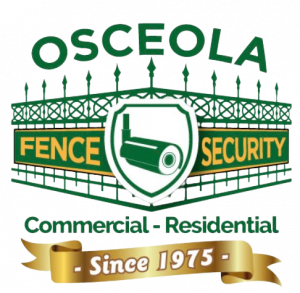Cedar vs Vinyl: Which is Best Fence for Chicago Winters?
Quick answer: For low-maintenance durability through freeze–thaw cycles, snow, wind, and road salt, vinyl generally holds up better. Choose cedar if you want a warm, natural look and you’re willing to do periodic maintenance.
TL;DR (Who should pick what)
Pick Vinyl if you want low maintenance, consistent look, and strong winter performance with minimal upkeep.
Pick Cedar if you want natural wood privacy and are okay with staining/sealing every 2–3 years to protect against moisture and winter wear.
Side-by-Side: Winter Performance
| Factor | Cedar (Wood) | Vinyl (PVC) |
|---|---|---|
| Freeze–thaw resistance | Good with sealing | Very good (non-porous) |
| Moisture/snow | Requires sealing to resist swelling/warping | Non-porous; easy to rinse off |
| Wind performance | Strong with proper posts/rails; solid panels catch wind | Very good; engineered rails; solid panels still catch wind |
| Salt & chemical exposure | Can discolor/degrade finish; needs maintenance | Rinses clean; less prone to corrosion |
| Maintenance | High (stain/seal every 2–3 yrs) | Low (wash as needed) |
| Lifespan (typical) | 15–25 yrs with care | 20–30 yrs |
| Look & feel | Warm, natural, customizable | Clean, uniform, modern |
| Cost of ownership | Higher over time (finishes) | Lower over time (fewer treatments) |
How Cedar Handles Chicago Winters
Cedar is naturally rot- and insect-resistant, which helps in wet, snowy seasons. It performs well if you keep up with finishes.
Best practices
Use pressure-treated posts or steel post systems for longevity.
Stain/seal before the first winter; refresh every 2–3 years.
Keep panels off soil/ice; add gravel at the base for drainage.
For windy alleys/open lots, consider board-on-board or add gaps to reduce wind load.
Great fits
Backyard privacy, “good-neighbor” designs, natural curb appeal.
Explore options: Cedar Wood Privacy Fences
How Vinyl Handles Chicago Winters
Vinyl doesn’t absorb water, so it shrugs off freeze–thaw and slushy snow. Modern vinyl systems use reinforced rails and strong posts that perform well in wind.
Best practices
Set posts deep below frost line with proper drainage.
After storms, rinse road salt and grime.
Use quality hardware and caps to keep panels tight.
Great fits
Low-maintenance privacy, pool enclosures, clean modern look.
See styles: Vinyl Fence Installation
Total Cost of Ownership (10-Year View)
Cedar: Lower upfront than premium vinyl in many cases, but finishes + touch-ups add cost and time.
Vinyl: Higher initial cost for quality systems, but very low ongoing maintenance usually wins over a decade.
Which is Best Fence for Chicago Winters and Better for Your Property? (Scenarios)
Busy family / rental / small business: Choose Vinyl (less upkeep).
Historic or design-driven block: Choose Cedar (natural grain, custom trims).
Windy corner lot / alley exposure: Either material works—focus on post depth, rail design, and panel openness.
Near salted streets or lots: Vinyl is easier to rinse clean.
Maintenance Checklists
Cedar (Fall + Spring)
Inspect posts/rails; re-tighten hardware.
Wash, then stain/seal as needed.
Clear mulch/soil from bottom of boards.
Vinyl (Fall + Spring)
Rinse panels/caps; check for heaving or loose posts.
Tighten gate hardware; lubricate hinges/latches.
Spot-clean scuffs; avoid harsh abrasives.
Permits & Design Notes (Chicago)
Front-yard fences have height/opacity limits, and most fences above certain heights need a permit. Before you finalize material and height, review our guide:
Read next: Fence Permit Checklist for Chicago
FAQs
Will vinyl crack in extreme cold?
Quality vinyl is formulated for cold climates. With proper and professional fence installation and support, cracking is uncommon in residential use.
Does cedar always need stain?
Unfinished cedar can weather to gray, but for winter protection and color retention, stain/seal is recommended.
Which is stronger in wind?
Both can be strong with proper posts and rails. Solid panels (cedar or vinyl) catch wind; adding design gaps or stronger framing helps.
What about privacy?
Both offer full-privacy options. Cedar can do board-on-board; vinyl has solid privacy panels.
What if I want gates and access control?
Both materials pair with automated gates and intercoms; frames/hardware are chosen to match the load.
Ready for a quote?
Since 1975, Osceola has installed cedar and vinyl fences that stand up to Chicago winters. We’ll help you choose the right system, set posts for frost, and handle permits.







